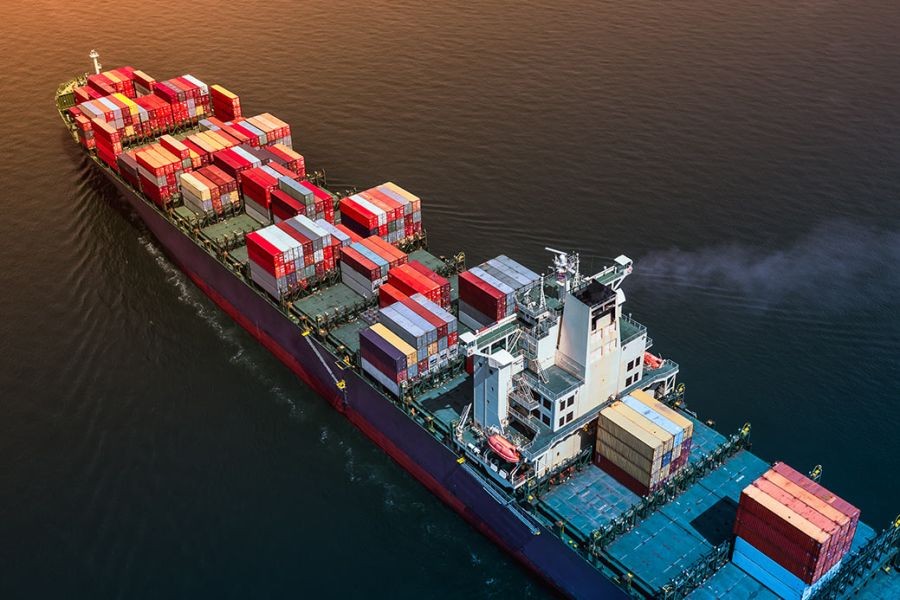New Zealand's role in global trade is often misunderstood, with various misconceptions clouding the reality of its economic contributions and strategic significance. While some perceive New Zealand as a small and isolated player, it is, in fact, an influential force with a robust export economy and strategic trade relationships. This article seeks to debunk common myths and provide a comprehensive, data-driven analysis that highlights New Zealand's true position in the global trade arena.
Understanding New Zealand's Trade Landscape
New Zealand's economy is heavily reliant on international trade, with exports accounting for a significant portion of its GDP. According to Stats NZ, the country's export value reached NZD 86 billion in 2022, with primary products like dairy, meat, and wine being the major contributors. Despite its geographical isolation, New Zealand has established itself as a critical player in global markets, leveraging its high-quality products and strong trade agreements.
Case Study: New Zealand Dairy Industry
The dairy industry is a cornerstone of New Zealand's export economy, exemplifying how the country has capitalized on its natural resources and agricultural expertise.
Problem: New Zealand's dairy industry faced challenges in maintaining competitiveness against larger global producers like the United States and the European Union. The fluctuating global milk prices and environmental concerns also posed significant hurdles. Action: Kiwi dairy producers implemented sustainable farming practices and focused on high-value products like organic and specialty dairy. They leveraged free trade agreements, such as the Comprehensive and Progressive Agreement for Trans-Pacific Partnership (CPTPP), to access new markets and reduce trade barriers. Result: Over a five-year period, New Zealand's dairy exports grew by 16%, with Asia-Pacific markets contributing substantially to this growth. The industry's focus on sustainability garnered a positive global reputation, enhancing market access. Takeaway: The dairy industry's success underscores the importance of innovation and sustainability in maintaining competitive edge in global trade. New Zealand businesses can emulate these strategies to enhance their export potential.
Debunking Common Myths About New Zealand's Global Trade Role
Several misconceptions persist about New Zealand's role in international trade. Here, we address and debunk these myths with factual insights and expert perspectives.
Myth 1: New Zealand is Too Small to Matter in Global Trade
Reality: While New Zealand is geographically small, its impact on global trade is significant, particularly in the agricultural sector. The country is the world's largest exporter of dairy products and lamb, with a substantial market share in these categories. According to the Reserve Bank of New Zealand, agricultural exports contribute over 50% to the country's total export revenue, underscoring its global trade importance.
Myth 2: New Zealand Relies Solely on Agriculture
Reality: Although agriculture is vital, New Zealand's trade portfolio is diverse. The tech industry, for instance, is rapidly growing, with software and services exports increasing by 11% annually according to MBIE. Additionally, the country is a leader in renewable energy technology exports, demonstrating its diversified economic base.
Myth 3: New Zealand's Trade Partnerships Are Limited
Reality: New Zealand has strategically expanded its trade partnerships, with over 90% of its exports covered by free trade agreements as of 2023. These agreements include major economies like China, Australia, and the European Union, allowing New Zealand to integrate more deeply into global supply chains.
Pros and Cons of New Zealand's Trade Strategies
New Zealand's trade strategies come with distinct advantages and challenges that shape its economic landscape.
Pros:
- High-Quality Exports: New Zealand's commitment to quality ensures strong demand for its products, particularly in premium markets.
- Strategic Trade Agreements: Comprehensive trade deals open up new markets and reduce tariffs, enhancing competitiveness.
- Sustainability Leadership: Emphasis on sustainable practices enhances brand value and market access.
Cons:
- Geographical Isolation: Distance from key markets can increase transportation costs and affect trade efficiency.
- Economic Volatility: Dependence on export markets exposes New Zealand to global economic fluctuations.
- Environmental Challenges: Balancing agricultural productivity with environmental sustainability remains a critical challenge.
Future Trends in New Zealand's Trade Dynamics
As global trade dynamics evolve, New Zealand faces both opportunities and challenges that will shape its future economic trajectory.
Trend 1: Digital Trade Expansion
With digital trade gaining momentum, New Zealand is poised to benefit from the increasing demand for technology-driven solutions. According to a 2024 Deloitte report, digital trade could contribute an additional NZD 10 billion to the economy by 2030, highlighting the importance of investing in digital infrastructure and innovation.
Trend 2: Sustainable Trade Practices
The global shift towards sustainability presents an opportunity for New Zealand to lead in green trade practices. By aligning with international sustainability standards, New Zealand can enhance its market access and ensure long-term trade resilience.
Trend 3: Diversification of Export Markets
New Zealand is prioritizing market diversification to mitigate risks associated with overreliance on specific regions. This strategy involves expanding trade relationships with emerging markets in Asia, Latin America, and Africa, reducing vulnerability to regional economic fluctuations.
Common Mistakes in Understanding New Zealand's Trade Role
To better appreciate New Zealand's place in global trade, it is crucial to avoid common pitfalls that can skew perception.
- Underestimating Market Diversity: Focusing solely on agriculture overlooks the growing tech and services sectors.
- Ignoring Trade Agreements: Overlooking the impact of trade agreements can lead to a narrow understanding of New Zealand's economic strategy.
- Neglecting Sustainability: Failing to recognize the role of sustainability in enhancing trade reputation can result in missed opportunities.
Conclusion: Embracing New Zealand's Global Trade Potential
New Zealand's role in global trade is far more dynamic and influential than commonly perceived. By leveraging its high-quality exports, strategic trade agreements, and commitment to sustainability, New Zealand continues to strengthen its position in the global market. As the country adapts to future trade trends, it is poised to capitalize on new opportunities, ensuring economic growth and resilience.
What are your thoughts on New Zealand's trade strategies? Share your insights and join the conversation!
People Also Ask (FAQ)
- How does New Zealand's trade impact its economy?New Zealand's trade significantly boosts its economy, contributing over 30% to the GDP, primarily through exports of dairy, meat, and tech products (Stats NZ).
- What are the biggest misconceptions about New Zealand's global trade role?A common myth is that New Zealand relies solely on agriculture. However, tech and services exports are growing rapidly, diversifying the economy (MBIE).
- What future trends will impact New Zealand's trade?Digital trade expansion and sustainable practices are key trends that will enhance New Zealand's trade competitiveness over the next decade (Deloitte Report 2024).
Related Search Queries
- New Zealand global trade partners
- New Zealand dairy export statistics
- Impact of trade agreements on New Zealand economy
- Future of digital trade in New Zealand
- Sustainability in New Zealand exports
































jaysonyamada68
9 months ago